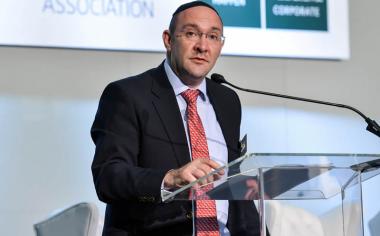Vukile Property Fund lifts its dividend by 3.5%
 Laurence Rapp, CEO of Vukile Property Fund, notes that the results reflect performance from its Spanish portfolio together with a continued solid showing from its SA shopping centres.
Laurence Rapp, CEO of Vukile Property Fund, notes that the results reflect performance from its Spanish portfolio together with a continued solid showing from its SA shopping centres.
Vukile Property Fund, SA’s eighth-largest real estate investment trust, increased its dividend for its half-year to September 2019 by 3.5 percent to 80.84c per share, in line with its market guidance.
The company, which has an asset base worth R37.6bn spread across SA and Spain, grew its dividend ahead of a market average of 2%.
Rapp said the SA portfolio achieved 6.1% net property income growth, and the dividend growth would have been stronger but for one-off costs including share incentives for management and Vukile’s property training academy.
Vukile’s MD for Southern Africa, Itumeleng Mothibeli, said the company’s SA assets had delivered a robust performance, having been helped by second-tier fashion and food retailers.
“We have opened 92 new brands in our centres. We are finding that many South African entrepreneurs are finding success in furniture, clothing and food retailing. So well [that when] some very large national retailers scale back their branches, that space is taken up by these smaller businesses which are expanding,” he said.
Vacancies in the SA portfolio sat at 2.8%, while Vukile retained 82% of its retail tenants.
The company says its local malls are benefiting from a slowdown of new retail developments in the country as they face less competition for strong tenants.
Rapp said established centres such as those Vukile owned were benefiting from loyal customer bases.
SA has the sixth-highest number of shopping centres in the world, with the SA Council of Shopping Centres saying there are more than 1,250 centres, 450 retailers and more than 200 service providers, accounting for almost 24-million square metres of space. However, fewer than 100 centres have come online in SA in 2019 so far, compared with 240 in 2018.
In terms of super-regional malls or those sized at 74,000m² or more, only four opened in 2019, including the revamped Fourways Shopping Centre. This is fewer than in 2016, when Mall of Africa opened along with another nine super-regional centres.
Rapp said at a results presentation on Monday that “many malls had opened in recent years and a number of these had performed poorly”.
“At an industry level, it is a welcomed development to see the national greenfield shopping centre development pipeline slow down,” he said.
“It is our view that dominant A-grade malls should continue to show growth over time as the market consolidates into these sites due to slowing supply,” he said.
Vukile has invested in SA shopping centres that serve people in the middle to lower living standards measurement study (LSMs), which are seen as more defensive than larger, super-regional shopping centres.
Rapp said Vukile’s inbuilt diversification meant its assets and future earnings were split almost equally between Southern Africa and Spain.
“With its employment growth and an A-grade credit rating with stable outlook, Spain is contra-cyclic to SA. This makes Vukile a solid rand-hedge property company,” he said.
Vukile invests in Spain through Castellana. The Spanish malls’ contribution to earnings increased 74% from 27% to 47% during the reporting period.
Castellana’s assets topped €1bn after the accretive acquisition of the 30,000m² Puerta Europa shopping centre in Algeciras, Cadiz.
Vukile reaffirmed its guidance of between 3% and 5% dividend growth in FY20.

















